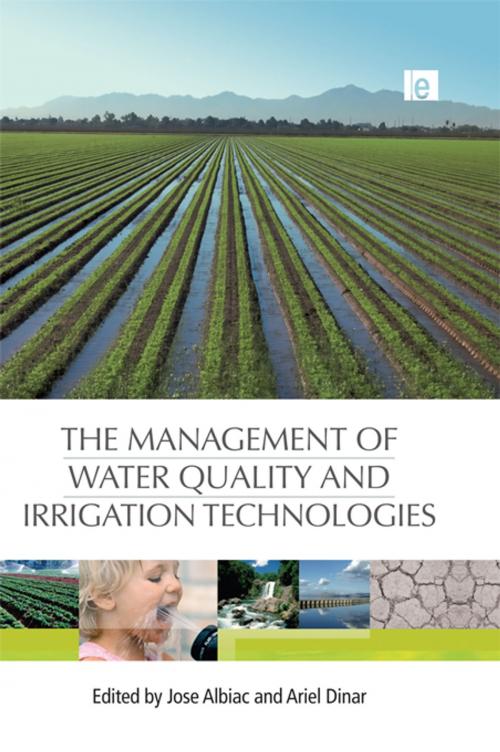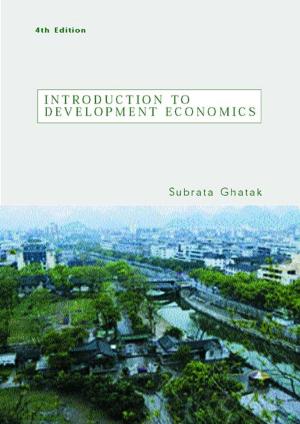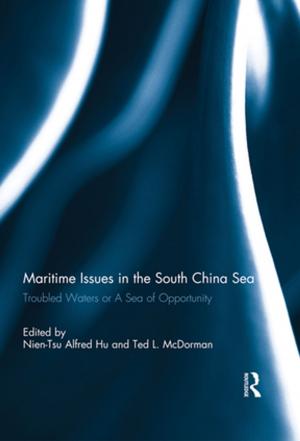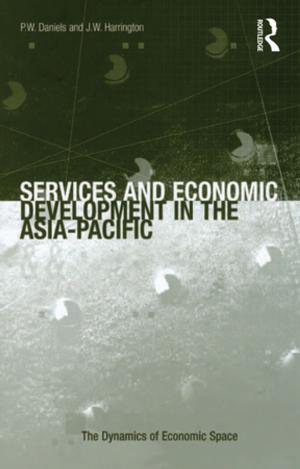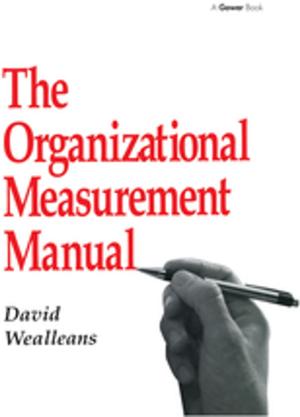The Management of Water Quality and Irrigation Technologies
Nonfiction, Science & Nature, Technology, Engineering, Environmental| Author: | ISBN: | 9781136553219 | |
| Publisher: | Taylor and Francis | Publication: | May 4, 2012 |
| Imprint: | Routledge | Language: | English |
| Author: | |
| ISBN: | 9781136553219 |
| Publisher: | Taylor and Francis |
| Publication: | May 4, 2012 |
| Imprint: | Routledge |
| Language: | English |
This book is an outcome from the International Expo 'Water and Sustainable Development' held in Zaragoza (Spain) in 2008. Support from the Spanish Ministry of Environment, Caja Rioja, Government of Aragon, and the World Bank is acknowledged. 'Few resources will play a more important role in shaping our economic future, or face more daunting challenges, than water. This internationally acclaimed team of experts has produced a first-rate volume that is full of intriguing, practical ideas for meeting those challenges in a rich variety of institutional settings.' Tom Tietenberg, Mitchell Family Professor of Economics, Emeritus, Colby College, USA 'This volume brings together two critical but interrelated dimensions of water challenge, i.e. water pollution, particularly from non-point sources, and water conservation. The editors are well known experts on the subject as are the contributors.' R. Maria Saleth, International Water Management Institute, Sri Lanka and Associate Editor, Water Policy 'The profound contribution of this volume is that it brings together various economic concepts and policy dilemmas regarding water shortages, non-point source pollution, efficiency of water use and irrigation technology. Recommended reading for anyone working in the area of water management.' Henk Folmer, University of Groningen and Wageningen University, The Netherlands As countries face deteriorating water and environmental quality as well as water shortages, pollution control and the efficiency of water use become of paramount importance. Agriculture is one of the main non-point polluters of water bodies and irrigation for agriculture is one of the main consumers of water. While it is very hard to regulate pollution from agriculture, attempts have been made via economic and command and control instruments, and also through investments in technologies and ecosystems recovery. Coping with non-point pollution takes the form of both policy intervention and technology development. Likewise it is recognized that irrigation efficiency varies across countries, influenced by both technology and supporting adoption policies. Countries that lead in irrigation technology and supporting policies have certain traits in common. They face very high scarcity and are pushed to find innovative solutions, both technical and policy related. The recent multibillion investments in irrigation technologies in Spain, and similar proposals in Australia, for example, highlight the potential of irrigation technologies to cope with scarcity and water quality degradation. This book reviews all of the above issues, presents experiences in selected countries, and assesses the degree of success of alternative policies for coping with non-point water pollution and improving irrigation efficiency.
This book is an outcome from the International Expo 'Water and Sustainable Development' held in Zaragoza (Spain) in 2008. Support from the Spanish Ministry of Environment, Caja Rioja, Government of Aragon, and the World Bank is acknowledged. 'Few resources will play a more important role in shaping our economic future, or face more daunting challenges, than water. This internationally acclaimed team of experts has produced a first-rate volume that is full of intriguing, practical ideas for meeting those challenges in a rich variety of institutional settings.' Tom Tietenberg, Mitchell Family Professor of Economics, Emeritus, Colby College, USA 'This volume brings together two critical but interrelated dimensions of water challenge, i.e. water pollution, particularly from non-point sources, and water conservation. The editors are well known experts on the subject as are the contributors.' R. Maria Saleth, International Water Management Institute, Sri Lanka and Associate Editor, Water Policy 'The profound contribution of this volume is that it brings together various economic concepts and policy dilemmas regarding water shortages, non-point source pollution, efficiency of water use and irrigation technology. Recommended reading for anyone working in the area of water management.' Henk Folmer, University of Groningen and Wageningen University, The Netherlands As countries face deteriorating water and environmental quality as well as water shortages, pollution control and the efficiency of water use become of paramount importance. Agriculture is one of the main non-point polluters of water bodies and irrigation for agriculture is one of the main consumers of water. While it is very hard to regulate pollution from agriculture, attempts have been made via economic and command and control instruments, and also through investments in technologies and ecosystems recovery. Coping with non-point pollution takes the form of both policy intervention and technology development. Likewise it is recognized that irrigation efficiency varies across countries, influenced by both technology and supporting adoption policies. Countries that lead in irrigation technology and supporting policies have certain traits in common. They face very high scarcity and are pushed to find innovative solutions, both technical and policy related. The recent multibillion investments in irrigation technologies in Spain, and similar proposals in Australia, for example, highlight the potential of irrigation technologies to cope with scarcity and water quality degradation. This book reviews all of the above issues, presents experiences in selected countries, and assesses the degree of success of alternative policies for coping with non-point water pollution and improving irrigation efficiency.
